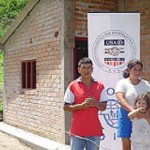
By helping families like the Bacas integrate into new communities, USAID is helping displaced Colombians recover from the past and improve their future.
Flor and José Baca pose in front of their new home in Los Andes de Sotomayor, Nariño, which USAID helped them build with their own hands.
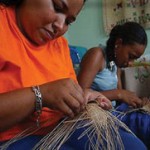
Orlanda was born and raised on a family farm in the municipality of Lebrija, in Santander, central Colombia. In Lebrija she worked in the field side by side with her four children and husband, who held a second job as a construction worker to make ends meet. Their life was peaceful until the day guerilla violence engulfed Lebrija.
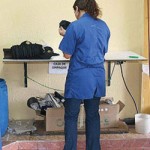
At 13, Tania fled home and an abusive stepfather to join an illegal armed group. Hoping to find a better life, Tania soon became disillusioned. Forced to work as a “bearer,” Tania carried heavy loads of equipment, often for several days and nights on end. With no permanent place to live or income, she ate only what she could scrounge up.
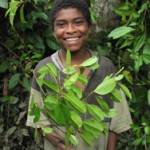
Scientists consider the Bajo Mira area, located on Colombia’s Pacific coast, as one of the world’s richest biological “hot zone” habitats. Home to a variety of plant and animal species, illegal logging practices seriously threatened the ecosystem.
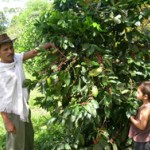
Colombia’s Urabá region has long suffered from serious security problems. In this tense climate, illegal armed groups often battled each other for control of land to grow illegal drug crops, such as coca. Today, the situation is changing, thanks to the efforts of strong eradication and alternative development programs.








Comment
Make a general inquiry or suggest an improvement.